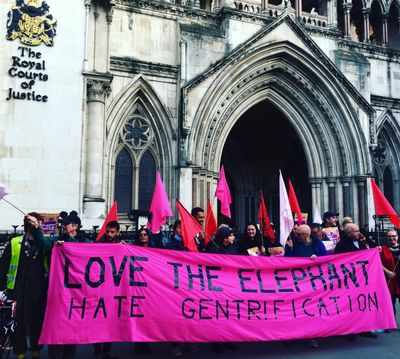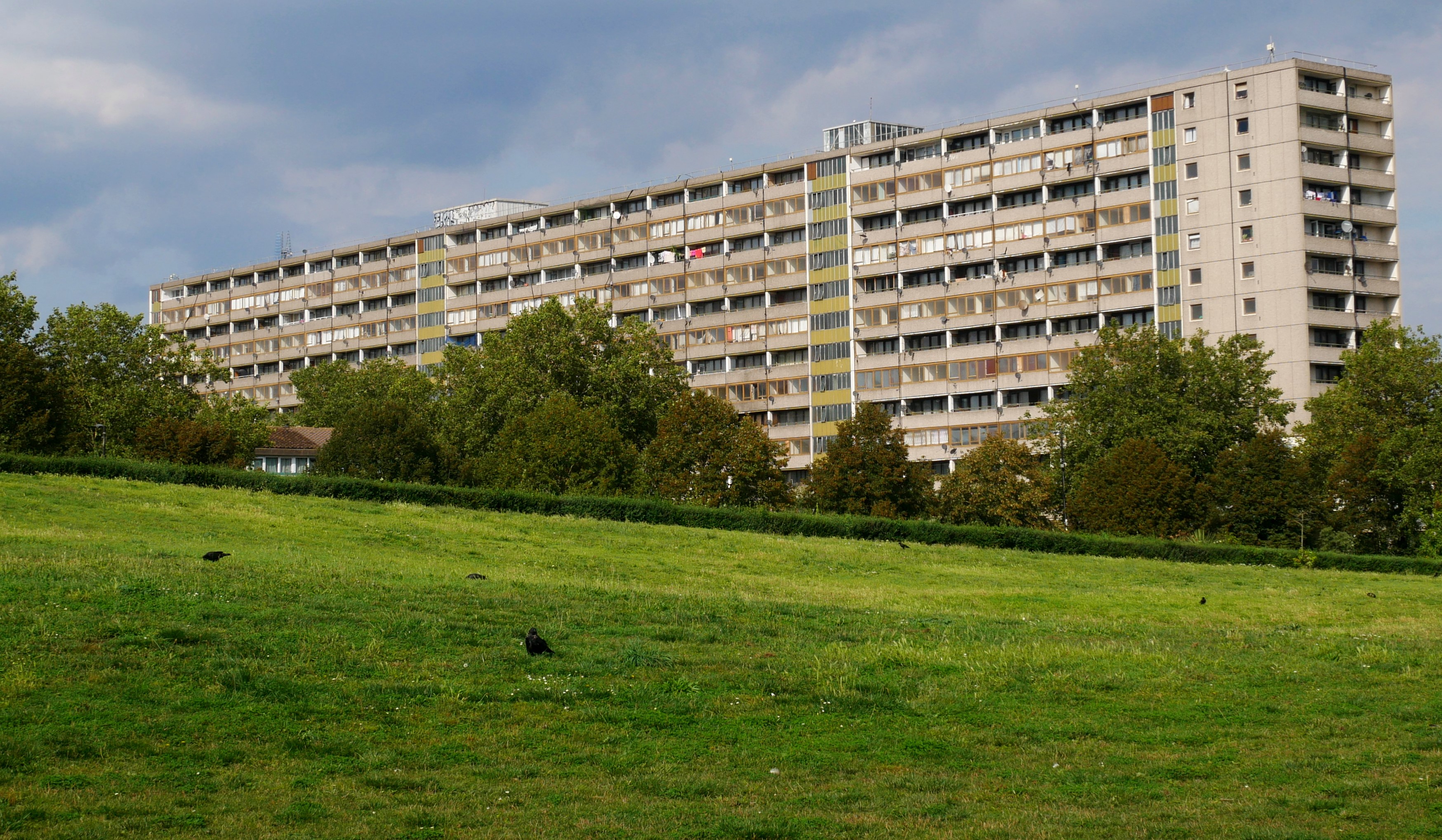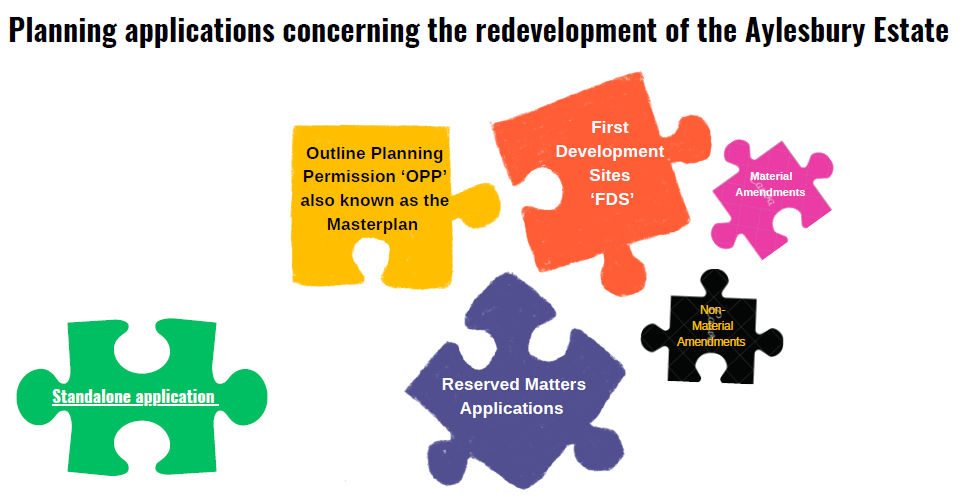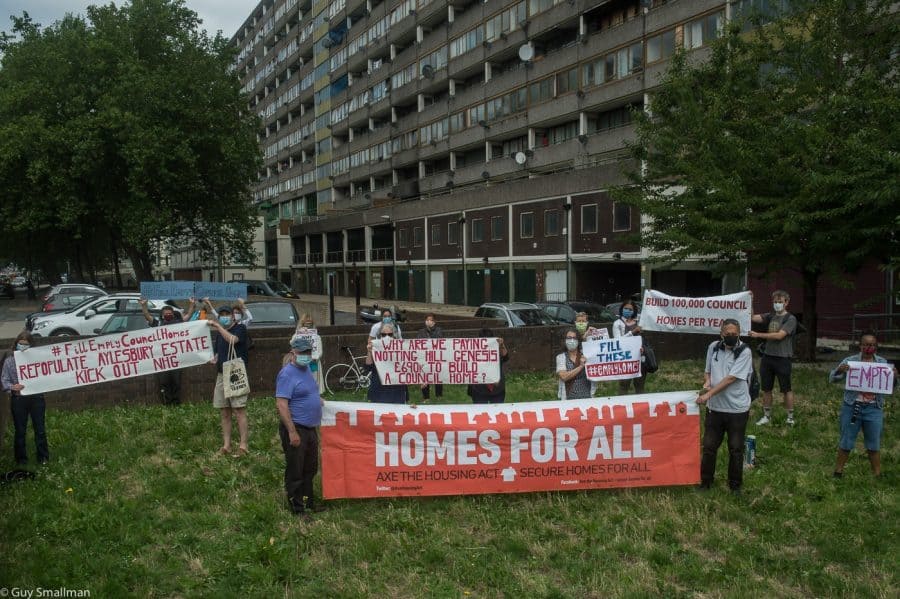
Latest phase of troubled regeneration triggers legal challenge to Aylesbury Outline Planning Permission
The legal challenge against Southwark Council’s decision to amend the Outline Planning Permission to facilitate approval of the latest phase of the Aylesbury redevelopment will be heard in the High Court in the Strand next Tuesday 28 November.
The challenge is being brought by long-term Aylesbury resident and housing campaigner Aysen Dennis. It relates to an amendment to the Outline Planning Permission for the Aylesbury Estate, which would allow the latest phase, Phase 2B, to go forward, but not as part of the historic, overarching Outline Planning Permission. Aysen is being represented by the Public Interest Law Centre (PILC) and barrister Alex Shuttock of Landmark Chambers. Phase 2B includes much of Wendover, plus Winslow, Ravenstone and Padbury blocks.
 Wendover Block on Phase 2b of the estate
Wendover Block on Phase 2b of the estate
Aysen’s case is that Southwark Council acted unreasonably by approving a change to the wording of the Outline Planning Permission, which covers the whole estate and was given to Notting Hill Genesis (NHG) back in 2015. The change is to add the word 'severable' in relation to the phased development. Although a small change, the consequence smooths the path for planning permissions which sit outside the parameters of the Outline Planning Permission, despite it being on the same land. As an example of this, NHG now proposes a 25-storey tower for Phase 2B, while the Outline Planning Permission only allows for a 20-story tower. Additionally, if this change is deemed lawful, it is feared that all future phases of the redevelopment could be outside the limits of the outline permission.
 The Aylesbury planning permission jigsaw - courtesy of PILC
The Aylesbury planning permission jigsaw - courtesy of PILC
Less social rented housing
The case has generated national publicity. In a Guardian article Saskia O’Hara, from PILC, referred to a recent supreme court decision on this issue, and said: “It is already difficult for communities to play a meaningful role in the planning process, and this is never truer than for a resident of a London estate which has been a target for demolition by councils and private developers over decades. Developers should not be able to sidestep the findings of the supreme court and have a free pass to change what was promised to residents in the historic planning permission.”
The Guardian article also points out that there would be a reduction in social rented housing, if the new planning permission for Phase 2B is allowed to go ahead. At the moment, there are 327 social rented homes on the site, plus 46 sold under right to buy. NHG proposes replacing them with 614 new homes in total, but only 163 would be socially rented.
Aylesbury campaigners mobilise
 Aylesbury estate protest - photo by Guy Smallman
Aylesbury estate protest - photo by Guy Smallman
Fight4Aylesbury campaigners believe that there is now a fresh opportunity to shape the future of the Aylesbury. They want a decent deal for all residents on the Aylesbury and believe that the best deal involves retaining current precious homes. They point out the CO2 impact of demolition is huge and make a four-point proposal;
• Invest in and improve the buildings we already have
• Insulate, retrofit and refurbish
• Stop the managed decline of the estate
• Stop social cleansing and demolition
They are urging all supporters to join them at the Royal Courts of Justice High Court (Strand, London WC2A 2LL) on Tuesday 28 Nov 2023 AT 9am.
Email – fight4aylesbury@gmail.com